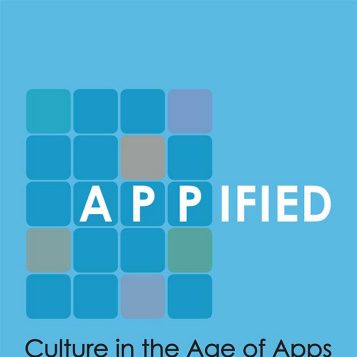About
I am an Associate Professor in Film/TV/Media and core faculty at the Digital Studies Institute.
I study media as they emerge and stabilize as popular social practices in historically specific moments. I am interested in how technologies foster recognition, vitality, and livelihood, and how they don’t. Like many, I want to know what it means to be alive, aware, and vital in this postdigital age. This means I focus on media cultures that produce care, intimacy, dignity, and a sense of being known. I research and teach about things like startup cultures and consumer technologies; how liaisons between tech culture and publics direct social use; how technologies complicate cultural crises; how mundane digital media practices make everyday life more comfortable (for some); and, how media makers and users negotiate periods of change.
My current book project is on deadness as a cultural zeitgeist and a solutionist extension of capitalist pressures. How do death, dying, and longevity matter as postdigital imperatives, and how is the meaning of deadness changing for human bodies, social life, the planet, and industry?
Much of my work is historiographic, which means I’m focused on reassessing a medium or technology in its contextualized period of newness. To do this, I draw on scholarship in digital histories, media industry studies, cultural studies, science and technology studies, software and platform studies, and philosophies of communication. My published research includes work on: how apps structure and are structured by our everyday; how independent podcasters grew a mobile, intimate medium; how early radio was an embodied technology; and, how we might theorize a postdigital conjuncture.
Artificial intelligence has become ordinary, yet Americans still don’t fully understand it. These seem like contradictory statements. How do we come to accept as ordinary something we may not fully understand? My forthcoming book, Powered by Smart: A Prehistory of Everyday AI (NYU Press, 2026), argues the groundwork was laid long ago for AI-supported daily life. It developed through a century of defining the relationship between bodies and machines as a smart fit. Today, AI's central tenets are embedded in everything from streaming television to managing traffic patterns. But the material and affective outcomes of ‘everyday AI' – recognition, convenience, and control – predate artificial intelligence as we know it today. Indeed, they are qualities that have always been promised at the intersection of artificial + intelligence. The book identifies key moments in recent history when artificial and intelligence are articulated to certain bodies and machines in new configurations. Smart has been, in different decades, the fastening of women, machinery, and the workplace (1920s); the weaving of science into the home (1950s); and, the newly mobile and physically fit body of the 1980s. Taken together, these moments offer a prehistory for pervasive digital mediation and its tendency to privilege white, middle-class bodies.
WINTER 2026 Courses
FTVM 604: Prospectus Writing for Doctoral Students
FTVM 190: AI and Popular Culture
FALL 2025 Courses
FTVM/DIGITAL 368: Digital Media Bodies
FTVM/DIGITAL 619: Intro to Science, Media, and Technology Studies
Winter 2025 Courses
FTVM 354: Digital History
Undergraduate history course on the U.S. rise of computers, Internet, web, and smart tech from the 1940s to the 2010s
FTVM 376: Digital Theory and/in Crisis
Undergraduate theory course on emerging technologies and their role in contemporary postdigital landscapes filled with societal crises.
Fall 2024 Courses
FTVM 620: Cyborgs Redux: Machines, Bodies, Manifestos
Grad seminar on cyborg theory and feminist antiracist approaches to postdigital human-machine relations
FTVM 190: Artificial Intelligence + Media
First Year Seminar (FYS) on how AI becomes defined in/through popular culture


